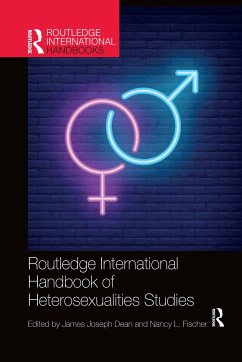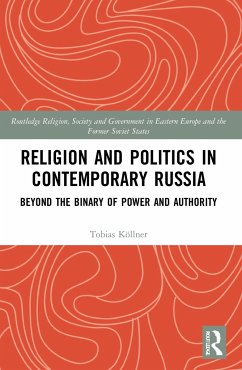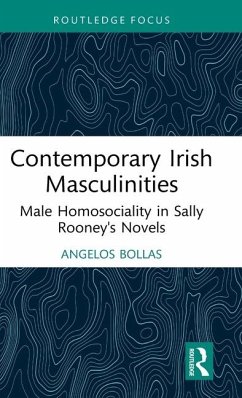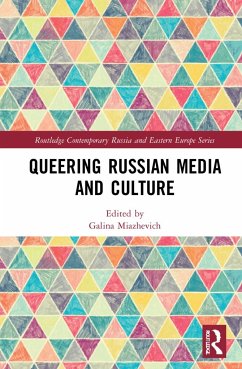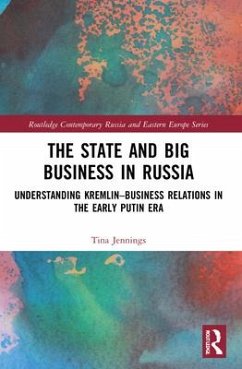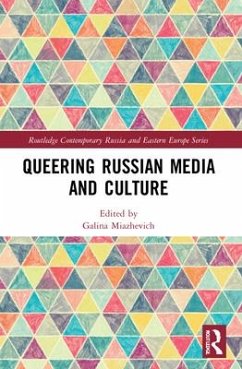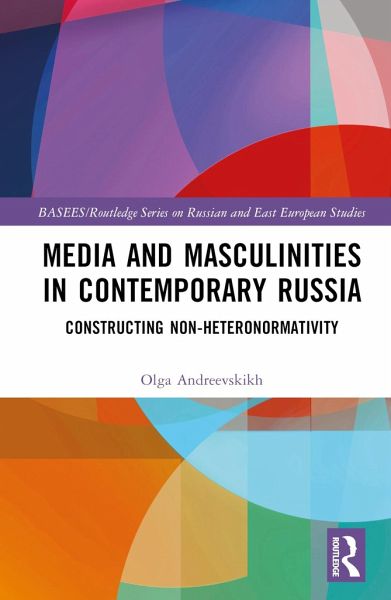
Media and Masculinities in Contemporary Russia
Constructing Non-heteronormativity
Versandkostenfrei!
Versandfertig in 6-10 Tagen
154,99 €
inkl. MwSt.
Weitere Ausgaben:

PAYBACK Punkte
77 °P sammeln!
Based on extensive original research, this book examines the extent to which media in Russia upholds the Russian government's stance on sexuality. It considers the Russian government's policies designed to uphold 'traditional sexuality', reveals the strategies of resistance used by Russian media outlets to create positive portrayals of non-heteronormative people and circumvent the restrictive 2013 legislation banning positive representations of 'non-traditional sexual relations', and highlights particular examples of subversive media practices. Overall, the book challenges the prevailing view ...
Based on extensive original research, this book examines the extent to which media in Russia upholds the Russian government's stance on sexuality. It considers the Russian government's policies designed to uphold 'traditional sexuality', reveals the strategies of resistance used by Russian media outlets to create positive portrayals of non-heteronormative people and circumvent the restrictive 2013 legislation banning positive representations of 'non-traditional sexual relations', and highlights particular examples of subversive media practices. Overall, the book challenges the prevailing view that media in authoritarian regimes are completely compliant with their government's position.





